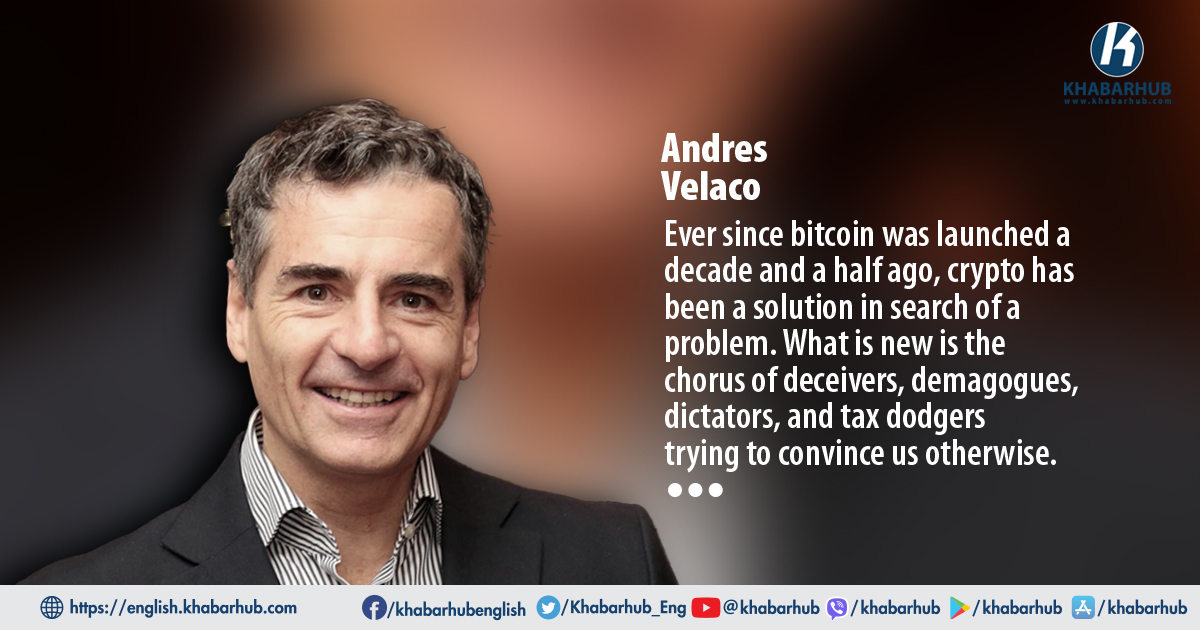I was zonking out in front of the screen during a particularly tedious Zoom meeting when a statement of unmitigated gall woke me up: “Trump’s election is a dream come true,” the crypto captain told us, his face glowing with glee.
I shouldn’t have been surprised: he happened to be sitting on a big pile of bitcoin, which had appreciated nearly 40% since Donald Trump beat Kamala Harris.
Now, this crypto baron was not as pleased as is Marc Andreessen, Silicon Valley’s top venture capitalist and a particularly loud crypto booster.
Because the Biden administration’s policies amounted to “repression,” for him Trump’s victory has “felt like a boot off the throat . . . Every morning I wake up happier than the day before.”
These cryptobros would vigorously deny that they are just talking up their own book. The dream that is coming true – the liberation of the crypto industry from the shackles of excessive regulation – will supposedly allow humanity to flourish.
That sounds great, except that regulation of crypto remains somewhere between light and non-existent, and crypto industry captains have yet to tell us what massive benefits await us.
Head of the chorus’s dictators section is Nayib Bukele of El Salvador, who was elected democratically but long ago stopped paying attention to pesky constitutional checks and balances.
In fact, even small benefits are nowhere to be found. Bitcoin has been around for 16 years, and you still can’t buy a cup of coffee with it, much less go shopping online.
The claim that crypto will replace fiat currencies looks increasingly implausible, but that hasn’t stopped boosters from touting other promises.
One fashionable prediction is that in an increasingly turbulent world, bitcoin will be like digital gold: a safe store of value.
But if that is the dream, it is a pretty boring one. Gold has been around forever and yet a tiny portion of humanity’s savings is held in bullion.
One reason is that gold prices are volatile – though not nearly as volatile as the price of bitcoin, which has a perfect track record of crashing every few years.
The other trendy argument is that crypto will make payments and money transfers much cheaper.
Cryptobros have a point here: my legacy New York-based commercial bank does fleece me by charging $30 every time I wire money overseas.
But slimming down those fat fees does not require crypto or the paraphernalia of blockchains. Competition from online-only banks and agile fintech firms is already doing the trick.
So, crypto is still a solution in search of a problem. What is new is the chorus of deceivers, demagogues, dictators, and dodgers trying to convince us otherwise.
The deceivers are people who tell us that crypto is about one thing, when it is really about something else.
Crypto was supposed to lessen our dependence on the evil governments whose currencies it would eventually replace.
Instead, the industry has become government’s influencer-in-chief: crypto donors accounted for almost half of all corporate contributions in the US presidential election, with the pro-crypto Fairshake super PAC giving away more than $200 million.
Cryptocurrencies were also supposed to render banks obsolete. But that has not happened, so crypto companies, like everyone else, need bank accounts to do business.
Cryptobros now whine about “debanking” – a new-fangled label for commercial banks’ perfectly reasonable (and legally required) policy of denying accounts to firms that may have links to money laundering or other illicit activity.
The demagogues are people who promise what cannot be done. According to Elon Musk, another crypto booster, his Department of Government Efficiency (DOGE) will cut “at least $2 trillion” from the US budget.
That know-your-customer unpleasantness is avoided if, like the participants in a vast scheme recently uncovered by British authorities, which allowed drug dealers and Russian spies to launder funds, you open a wallet on a public blockchain and fill it with stablecoin.
But entitlements, interest payments, and defense account for 88% of total US federal spending.
As Harvard professor Jeffrey Frankel has pointed out, even if Musk eliminated all non-defense discretionary expenditures, the resulting savings would not come close to $2 trillion, so the whole thing is “sheer fantasy.”
Head of the chorus’s dictators section is Nayib Bukele of El Salvador, who was elected democratically but long ago stopped paying attention to pesky constitutional checks and balances.
Human Rights Watch reports that his government has detained “roughly 3,000 children,” many of whom were “subjected … to severe ill-treatment that in some cases amounted to torture” and “held in inhumane conditions, deprived of adequate food, health care, and family contact.”
Cryptobros love Bukele anyway, because in 2021 he made bitcoin legal tender in El Salvador.
Never mind that Bukele’s bitcoin experiment was a complete failure. His government gave away an e-wallet with $30 of bitcoin to anyone who signed up, but most people who did immediately exchanged the cryptocurrency for dollars.
A much-ballyhooed “volcano bond” denominated in bitcoin was never issued. And now, in exchange for a $1.4 billion emergency loan to bail out the bankrupt Salvadoran economy, the International Monetary Fund has demanded that Bukele stop forcing local firms to accept bitcoin.
Tax dodgers and money launderers remain prominent among crypto users, which is hardly surprising: it is a no-questions-asked technology.
Consider stablecoins, cryptocurrencies (supposedly) backed by liquid dollar assets.
Why might you want to hold a hybrid version of the greenback instead of the real thing?
Because to open a dollar account in a bank, you will have to answer questions about where the money came from.
That know-your-customer unpleasantness is avoided if, like the participants in a vast scheme recently uncovered by British authorities, which allowed drug dealers and Russian spies to launder funds, you open a wallet on a public blockchain and fill it with stablecoin.
Deceivers, demagogues, dictators, and dodgers have one thing in common: they all pose as libertarians.
Any limit to their activity, they cry, is an attack on human freedom. With friends like these, freedom needs no enemies.
(Andrés Velasco, a former finance minister of Chile, is Dean of the School of Public Policy at the London School of Economics and Political Science)
Copyright: Project Syndicate









Comment